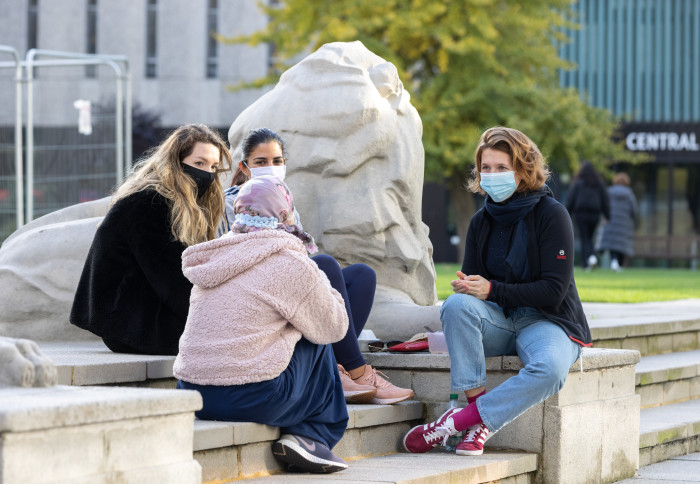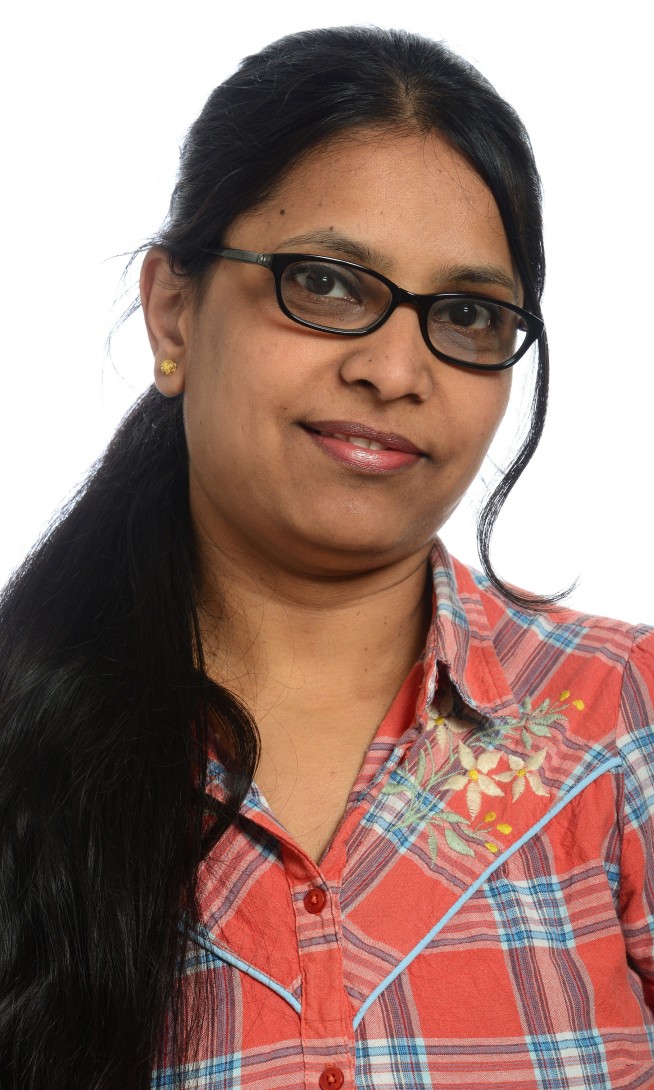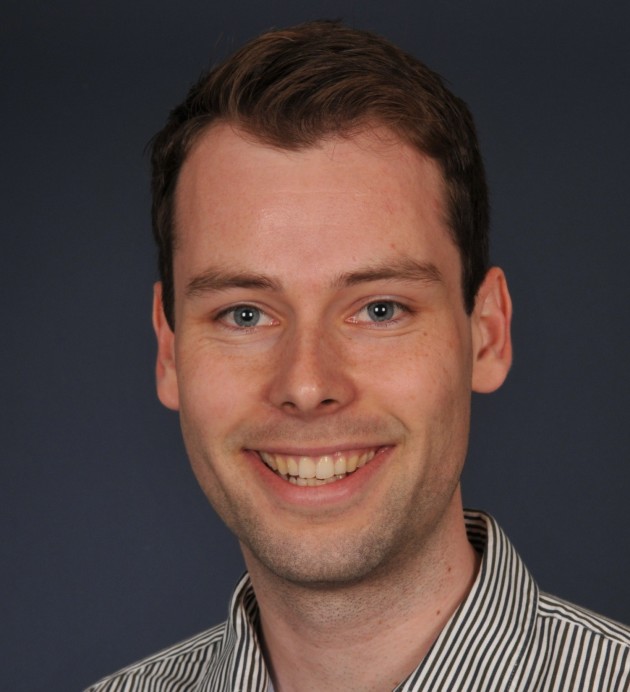Personalising medicine at the National Heart and Lung Institute

A new STEMM module has started at the National Heart and Lung Institute (NHLI) as part of the I-Explore programme offered by Imperial.
Update - February 2023: It is with great sadness that we share the news that Dr Latha Ramakrishnan has sadly passed away.
Personalised Medicine: Hope or Hype? welcomed its first intake of students in January 2021 from a range of courses, including Biochemistry, Biological Sciences, Biotechnology, Medical Biosciences and Medicine.
"Students will be empowered to debunk fake narratives and make well-informed evidence-based decisions" Dr Latha Ramakrishnan
The STEMM (Science, Technology, Engineering, Mathematics, and Medicine) module is one of the latest additions to the I-Explore module suite and is hosted by NHLI. The I-Explore modules were created to allow students from different academic disciplines to collaborate, broaden their educational experience and share ideas. Next academic year, Engineering undergraduates will also be able to join the module.
Professor Louise Donnelly, Director of Education (Taught Programmes) at NHLI, welcomes the new addition, "the NHLI is delighted to host this innovative course for undergraduate students from across the College. It is an opportunity for cross-departmental interactions and will demonstrate the breadth of opportunity at NHLI for future collaborations".
Dr Latha Ramakrishnan, the module lead, spoke to us about the new module, her academic background and what drew her to the role.
What is your background and role at NHLI?
I am biomedical scientist by training with a PhD in Molecular Cell Biology. I worked as a Research Associate at NHLI from 2010 to 2017, during which time I was involved in various teaching and pastoral care activities for both undergraduate (UG) and postgraduate (PG) students. Including as an Assistant Supervisor for a PhD student and as a Postdoc Rep. Later, as a Strategic Teaching Fellow, I led and supported the curriculum review of 21 postgraduate programmes within the Faculty.

In my current role as an Biomedical Education Transformation Fellow in the Academic Development Team, I am working towards increasing the quality of Postgraduate teaching and student experience, through continuous engagement with Faculty of Medicine (FoM) PG academics to enhance their Teaching and Learning practices, develop teacher identities and educational leadership and transform existing cultures.
I am also currently leading on two educational research projects looking at the role of critical reflection in resilience enhancement in FoM MRes students, and identity formation in FoM Teaching Fellows.
What drew you to the role of module leader of Personalised Medicine?
Until now, I was almost always teaching on sessions designed by others, with limited amount of flexibility to manoeuvre or incorporate all the innovative ideas that I learnt via my educational experience. I had not had much opportunity to execute, or showcase from start to finish in a joined-up fashion, what I was advocating to colleagues during curriculum review.
Whilst I was working on incorporating College’s Learning and Teaching strategy into FoM PG programmes during Curriculum Review, the College also launched the Academic Strategy, with ‘Personalised Medicine’ as one of the priorities. Having previously researched on several diseases, I knew that management and treatment strategies work better when tailored towards individual needs or conditions presented by patients.
Therefore, when College invited proposals for innovative I-Explore STEMM modules, to encourage cross-disciplinary learning, I conceived the idea of using ‘Personalised Medicine’ to showcase the cutting-edge research of FoM, but also as a springboard to develop student critical-thinking by getting them to identify the frontiers and controversies of the field and kindle debates on pros vs cons, if Personalised Medicine represents ‘Hope’ or ‘Hype’. I secured College funding and obtained Quality Assurance approvals for development of this new exploratory i-STEMM module and I am now leading on its remote delivery.
How would you describe the module for anyone unfamiliar with the I-Explore modules?
As part of the College's Learning and Teaching strategy and curriculum review, spare capacity was created across all undergraduate programmes for the students to explore topics outside their disciplinary boundaries.
I-Explore modules include languages and humanities. Within I-Explore, STEMM modules are novel cross-disciplinary modules, that offer STEMM topics either outside students’ primary discipline or pioneering research areas currently not offered as part of undergraduate programmes. The STEMM modules are open to all undergraduates from any Faculty, hence the challenge is to pitch it at the right level, to engage a diverse cohort.
"I enjoy empowering the students to make critical decisions, solve real-world problems, learn through failures and develop a strong professional identity."
What is the Personalised Medicine module about?
The module is based on blended and flipped learning. All activities have been designed to embed critical thinking, reflection, team-working and multiple-perspectives into student learning. The students navigate their journey through personalised medicine via three scientifically representative and culturally inclusive avatars – Alina, Chris and Jane (representing different medical conditions and viewpoints), criss-crossing the entire module with their personal stories relevant to personalised medicine, asking several intermittent open-ended questions, to force students to reflect and think critically.

By the end of the module, the students (irrespective of their primary discipline) will be empowered to debunk fake narratives and make well-informed evidence-based decisions such as whether personalised medicine represented ‘hope or hype’ for them, and further identify and critique the hype whilst also exploring multi-disciplinary solutions to convert them to hopes.
I have assembled an enthusiastic team of experts from different departments including NHLI, the Department of Metabolism, Digestion and Reproduction and the Department of Surgery and Cancer, but also from Faculty of Engineering, to deliver the different topics.
If you have exciting ideas regarding ways to engage non-biology students into personalised medicine, do get in touch with me at l.ramakrishnan@imperial.ac.uk or personalisedmed@imperial.ac.uk.
What do you enjoy about teaching?
For me teaching is less about facts and knowledge, which is now easily accessible with a click of a button. I enjoy empowering the students to make critical decisions, solve real-world problems, learn through failures and develop a strong professional identity. Being a part-time MEd student myself, I believe in life-long learning, so both teaching and learning should be more fun and less of a chore.
What advice would you give to your student self?
Never underestimate anyone’s skills and capabilities. Always seek and act on constructive feedback. Be resilient and hang in there!
Artificial Intelligence: Hype or fact?

Dr Joram Posma, Lecturer in Cancer Informatics and lead on the module's session on AI, explains what this topic entails.
Artificial Intelligence, or AI, is a hot topic again – not just in cars, but also in healthcare. The last few years many scientific studies have made the mainstream news promising new advances with AI for the benefit of patients. But are we there yet, are our hopes justified or is it still hype?
This question is central in the session about Artificial Intelligence in Personalised Medicine that I run and was developed together with Dr Latha Ramakrishnan and StudentShapers for the STEMM module.
This module is aimed at students from disciplines outside computer and data science and by the end of it each student will be able to explain the differences between types of AI, assess claims made in a news article and critique it based on the scientific papers, and identify what critical steps lie ahead for the research before the claims could be fully realised.
The goal is to give the students the experience to ask the right questions when they encounter AI research in healthcare or in their own field to judge whether it’s hype or if people can realistically hope to benefit from it.
Find out more about the STEMM modules on offer on our webpages.
Article text (excluding photos or graphics) © Imperial College London.
Photos and graphics subject to third party copyright used with permission or © Imperial College London.
Reporter
Miss Lizzie Lomer
National Heart & Lung Institute